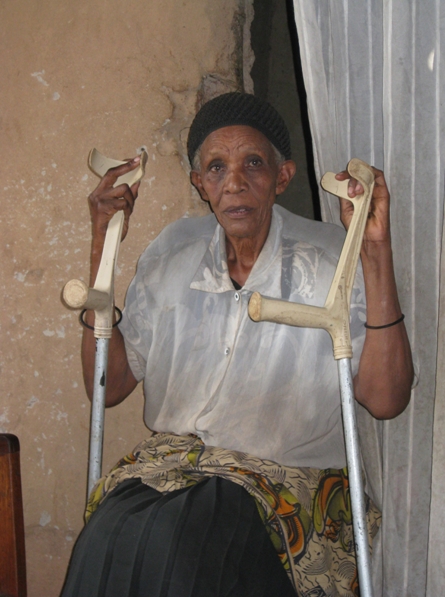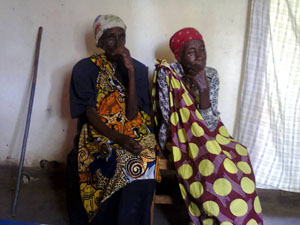
Rwanda: Elderly Genocide Survivors – a Complex Problem.
By Eric Didier Karinganire, Rwanda Focus.
Rosaria Mukamusoni, 81, lost her entire family during the Genocide, and for her, it is not history, but a lasting wound. She now stays alone in Gasharu cell in Gasabo where she has to cope on her own. “I used to struggle and feed myself, but I’m no longer able to do anything,” she points out. “When I am lucky, I get something from a donor.”

After the 1994 Genocide, the government established the assistance fund for genocide survivors (FARG) to provide all needy survivors with basic necessities. This includes a project program where they are assisted to run income-generating activities, but Mukamusoni can’t really do any activity. “They recently introduced a mushroom project, but I’m no longer strong. Only young people can do that,” she says.
What remains for the elder widow is to stay inside the house she got from FARG some years back, yet there she falls prey to strong emotions such as bereavement, loneliness, restlessness, insomnia, and generally, poor mental, emotional, and physical well-being as there is no one around to help.
The sad life that Mukamusoni experiences is common among many older genocide widows who lost all of their relatives during the genocide, and who live in solitude for the rest of their lives.
Chantal Kabasinga, the president of the Genocide survivors association AVEGA Agahozo, decries it as “a new, very complex issue” and said that they identified 1462 people over 70 whose family members were all massacred, and who have no one to take care of them.
Southern Province tops the list with 547; Western Province follows with 304 while Eastern Province has 390. Northern Province and Kigali city have 114 and 107 respectively.
“Most of them don’t only need food, but also are unable to wash themselves or their clothes. It’s a very complex issue rising rapidly,” Kabasinga points out, adding that Avega has so far identified 248 women who are in the worst situation to start taking care of during the 100 days of mourning.
Direct support
Odette Kayirere, the executive secretary of Avega, observes that last year they gathered information about such elderly widows and they now have a book in which they keep pictures and the state of each of them. Among them, 804 have been identified in the worst situation. And the numbers keep increasing as years go by.
Kayirere explains that they are in consultation with all concerned entities to see how they can help such women. In the meantime, the association will carry out comprehensive research to understand the issue and identify solutions. “We need research-based facts, rather than emotions,” Kayirere points out.
The results are expected by the end of May.
“Rwandans used to love each other, but I can see that things have changed. No one can spend his time taking care of you, everyone looks after himself.”
Jean de Dieu Udahemuka, FARG’s communications officer, for his part says that they provide the elderly with direct support. The basic unit is Frw 7,500 per individual, but Udahemuka says this can be increased depending on the specific situation of a person.
The official says that they work hand in hand with Avega which has representatives up to cell level to know those who are in need. He also mentioned that they work with grassroots entities to facilitate access to their support. Nonetheless, it can be useless for an elder aged over 70 since she can’t do anything unless there is someone to help.
“We recognize that it’s a very complex issue. It’s an issue that has to be owned and examined by a wide range of institutions to see what can be done or how the community can be involved,” Udahemuka explains.
Nursing homes
Suggestions among officials are varied. One is to find nursing homes where they can be gathered and taken care of, but here again, Rwanda’s philosophy has been to build a family-based community.
On the other hand, it has been suggested to find a sustainable way for local communities to take care of these elders. However, even that might have adverse effects. “When I got a house from FARG, I could hear some of my neighbors murmuring that ‘they gave her a house while there are healthy people around,'” says Asteria Nyirabashi, 81, staying in Kinyinya in Gasabo.
In addition, there have been reports of threats against genocide survivors, or actual violence such as the killing of their cows and even murder. This obviously creates fear among them.
The elder widows met in Kinyinya tell this paper that it’s even rare that one of their neighbors comes to pay them a visit. “Rwandans used to love each other, but I can see that things have changed,” Mukamusoni sighs. “No one can spend his time taking care of you, everyone looks after himself.”
